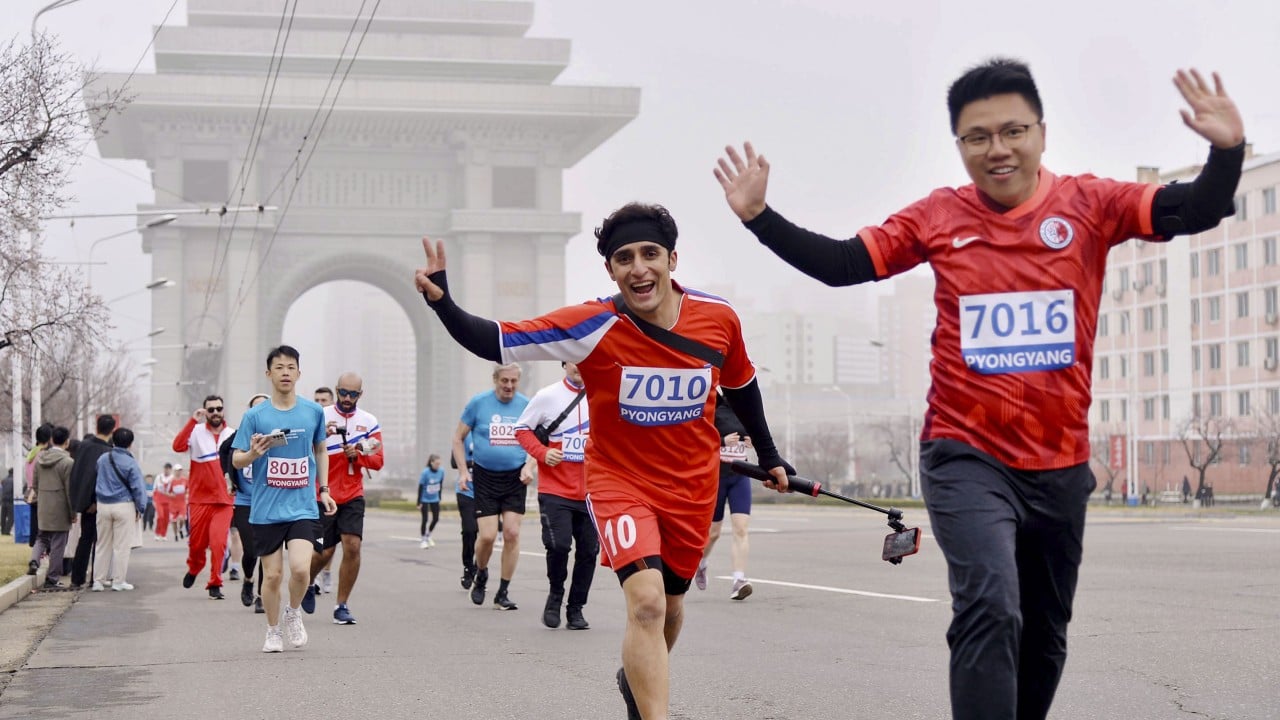When Simon Cockerell returned to the Pyongyang International Marathon last month after a five-year break, he felt a familiar energy – but the landscape had clearly shifted.
Advertisement
The general manager of Koryo Tours, the marathon’s official travel partner, brought just 200 international visitors to North Korea, a stark drop from the 700 his company hosted in 2019. He attributed the smaller turnout to a combination of stricter access, limited travel options, and a reduced registration period.
Unlike previous marathons announced nearly a year in advance, this year’s race was confirmed only a month before the event on April 6, giving participants barely two weeks to register. Flights from Beijing were the only international entry point, and instead of the usual five to seven hotels, only one – managed by the athletics association in North Korea – was available. Visitors toured local landmarks and sampled North Korean beer, but under the official designation of a “sports delegation”, not tourists.
Analysts say the highly restricted format – along with North Korea’s general reluctance to reopen its borders to foreign visitors – reflects a deeper strategic shift.
Amid tighter information controls and a growing military and economic partnership with Russia, Pyongyang appears to be turning its back on international tourism in favour of more politically aligned and financially dependable avenues of engagement.
The costs of tourism have outweighed the benefits, and it seems North Korean decision-makers have come to realise that
North Korea has remained largely closed to tourists since it sealed its borders in 2020 at the onset of the Covid-19 pandemic. While Russian nationals have been allowed in since early 2024, a brief reopening in February to non-Russian visitors in the northeastern city of Rason lasted just three weeks before the border was closed again without explanation.
Advertisement

